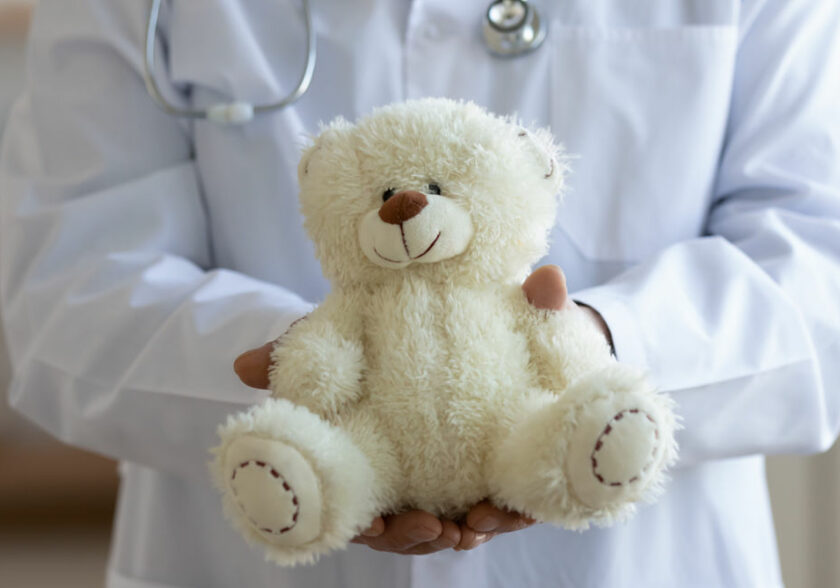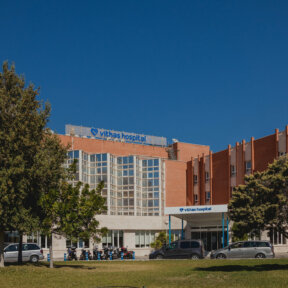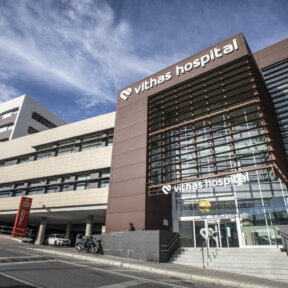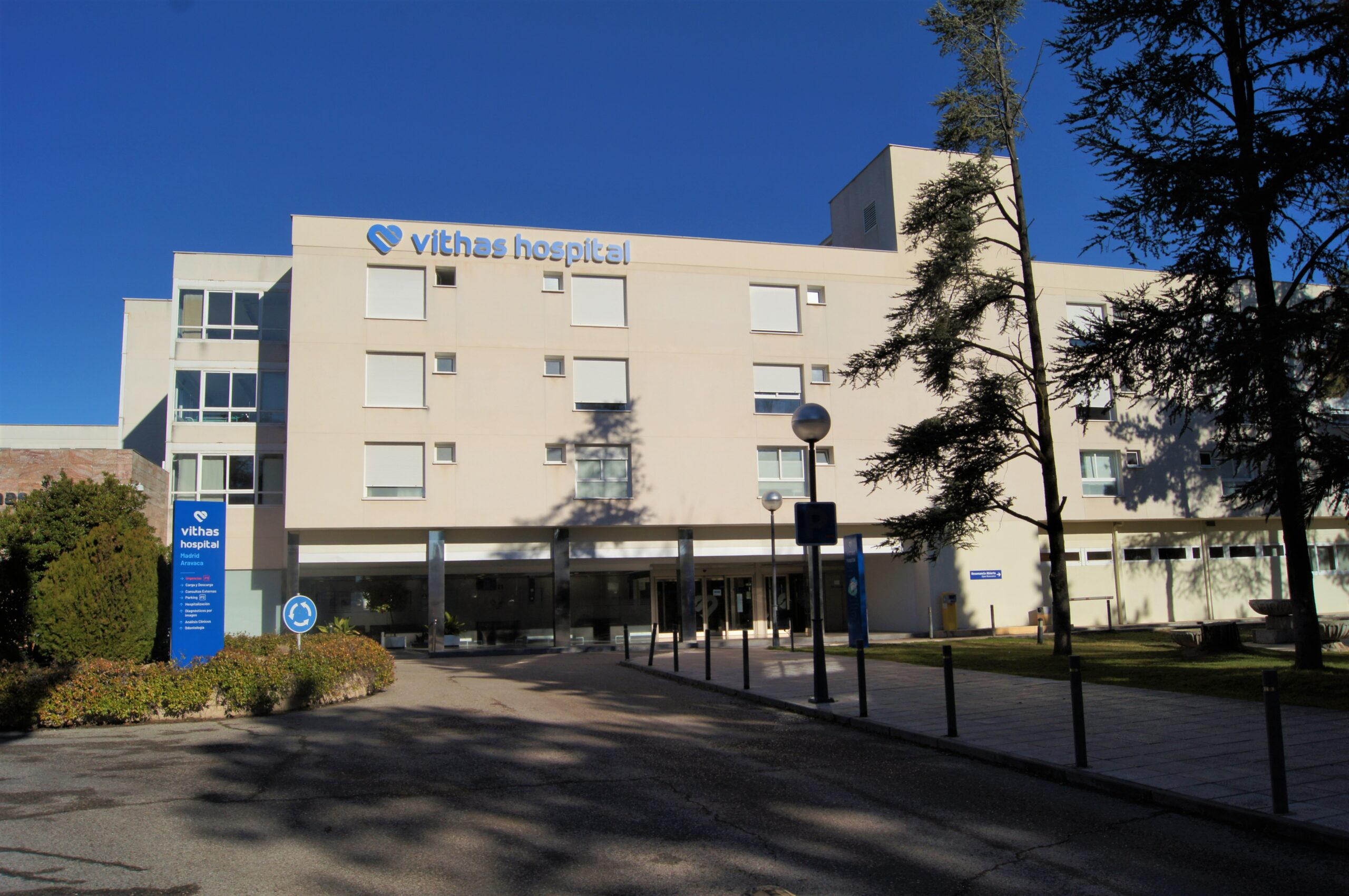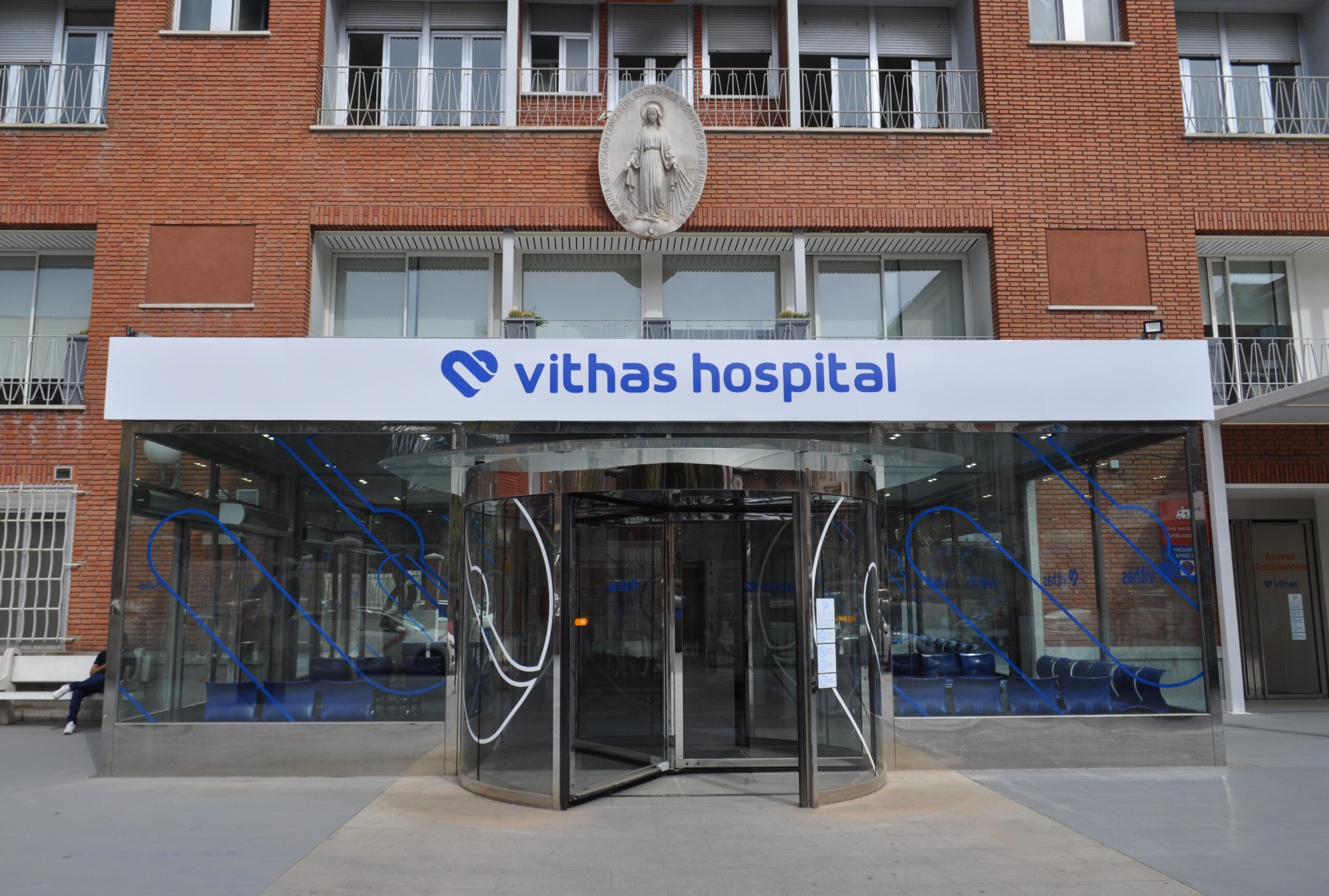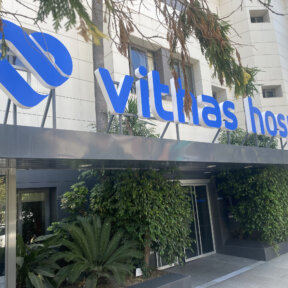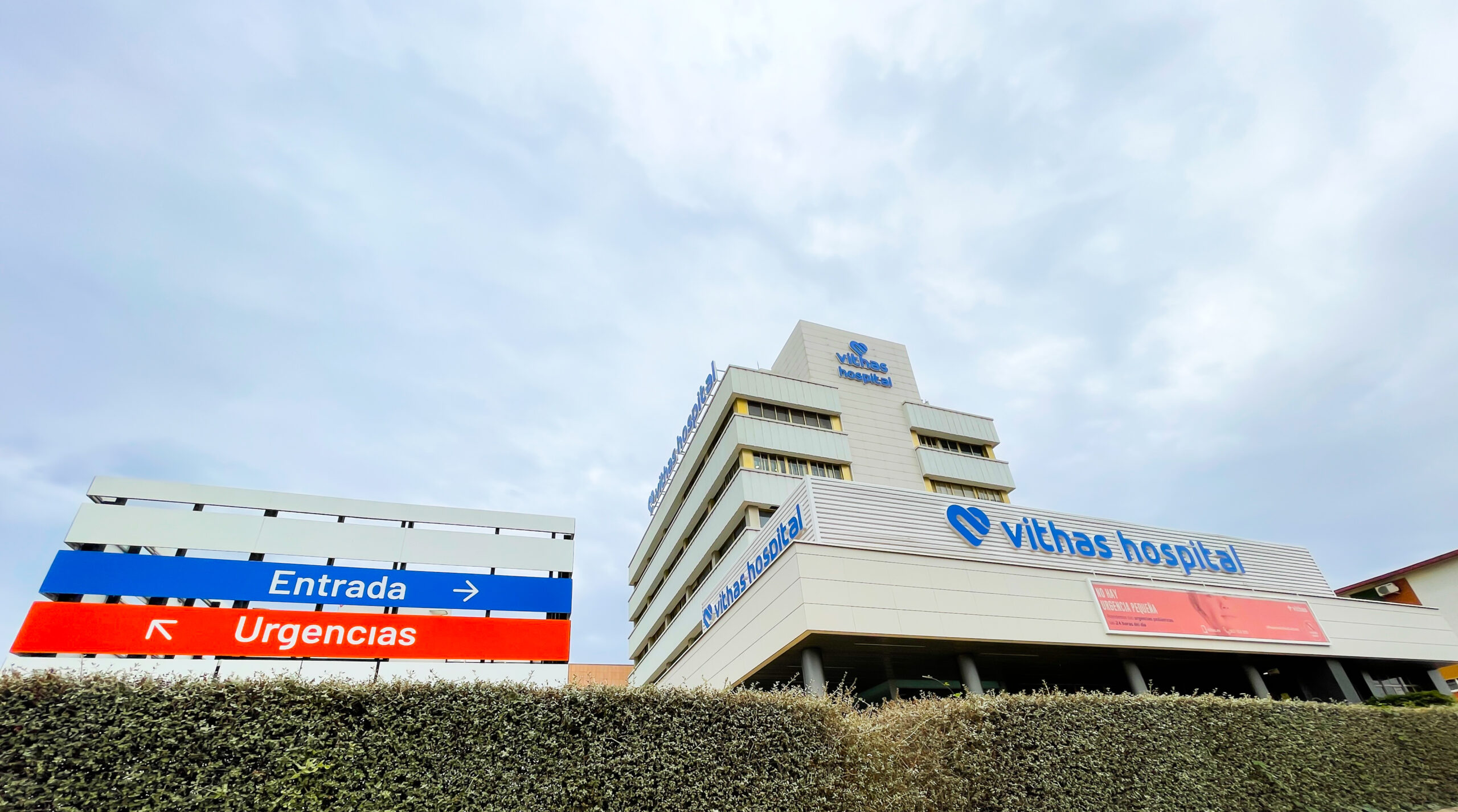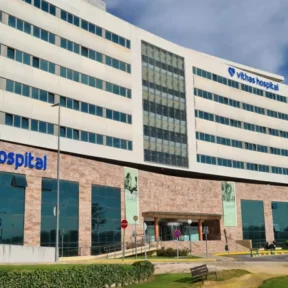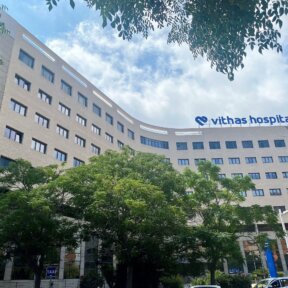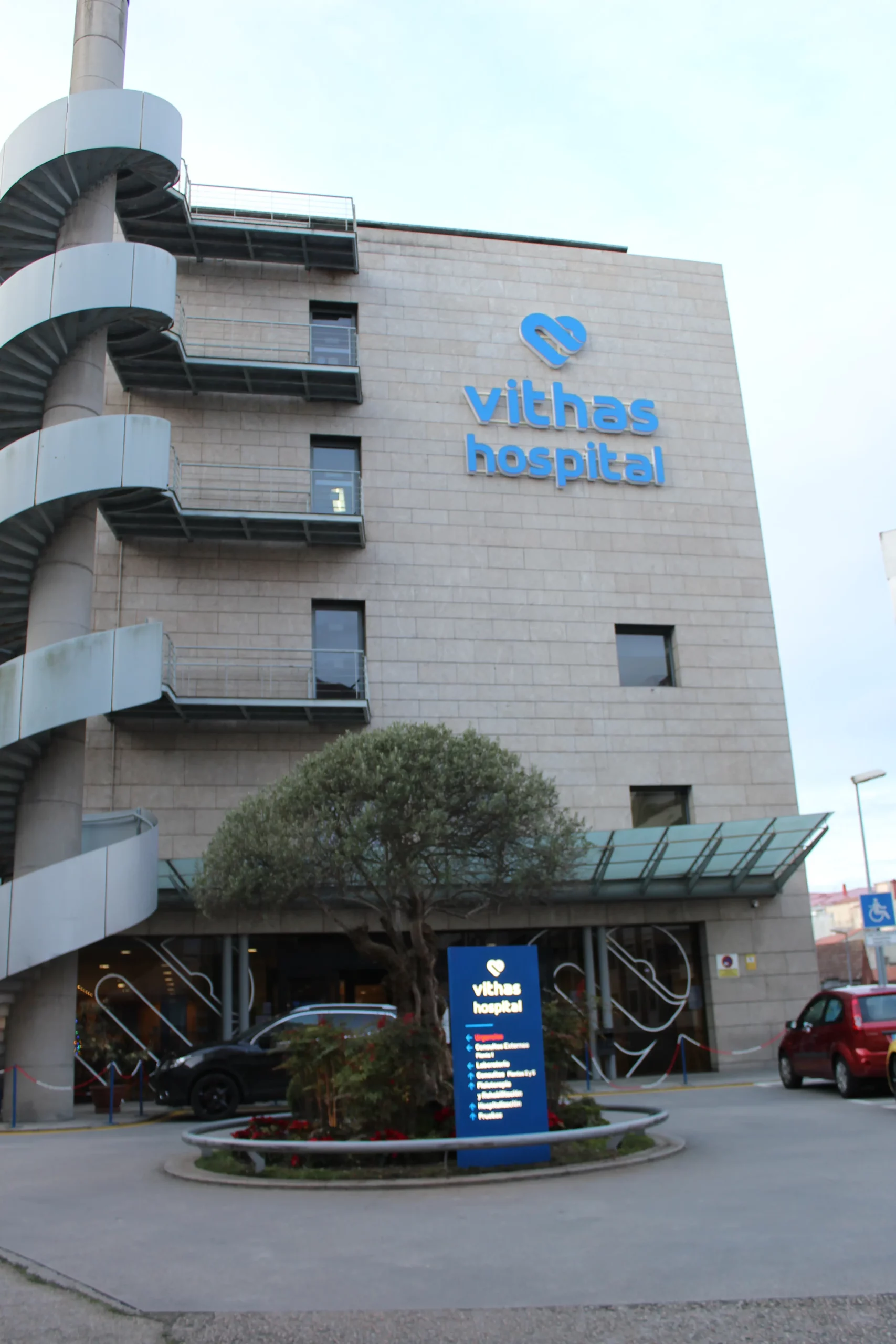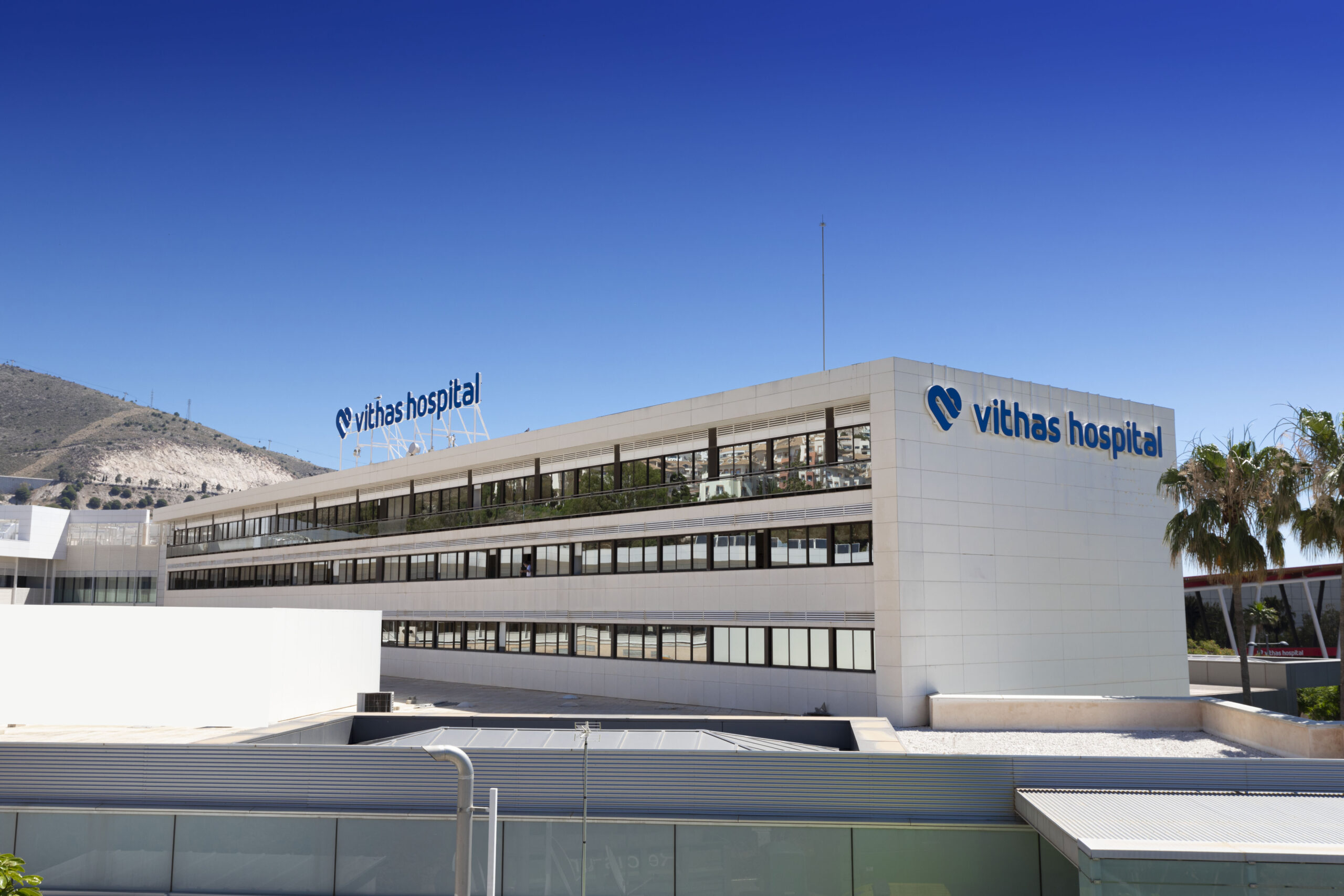What is paediatric surgery?
Paediatric and neonatal surgery is one of the pioneering specialities offered by Vithas hospitals. Our centres are leaders in treating premature babies, where we draw on all our experience and technical resources to improve their growth and development from birth. Often, paediatric surgery is essential to these premature babies’ long-term survival.
Our team of neonatal surgeons perform extremely complex interventions supported by specialists in paediatric anaesthesiology, using methods such as the administration of sucrose to relieve pain to general anaesthesia with advanced patient monitoring. These interventions improve the baby’s neurological development in the medium and long term.
We offer emergency neonatal surgery care 24 hours a day, 365 days a year to ensure newborns can be given round-the-clock medical attention. Thanks to the collaboration between neonatologists, neonatal surgeons and our specialised nursing team, we have successfully treated babies born after 24 weeks of gestation and weighing only 500 grams.
Which patients is it for?
Paediatric surgery treats surgical pathologies during the paediatric age, which today ranges from conception (there are great advances in foetal surgery) to the end of adolescence.
Main conditions and diseases
- Urgent surgeries: Acute appendicitis, complicated inguinal hernias, intestinal intussusception, and others.
- Diagnosis and treatment of congenital digestive malformations: Oesophageal atresia, tracheoesophageal fistula, intestinal atresia and duplication, anal atresia and/or fistulae.
Paediatric surgery is like adult surgery and is mainly limited to general surgery and digestive system surgery, including urgent problems and congenital digestive malformations. In addition to that, it also deals with minor surgical problems (removing preauricular appendages, cutting umbilical cords that take time to fall, phimosis and balano-preputial adhesions, etc.) Everything else is carried out by specialist surgeons: Neurosurgery, Maxillofacial, Traumatology and Orthopaedics, Child Urology, etc.
Main diagnostic resources and technology
For the diagnosis, Vithas centres have the Imaging Diagnostic (simple radiology, ultrasound, CT scan, magnetic resonance), Laboratory (any analytical determination) and Nuclear Medicine Services needed to arrive at the correct diagnosis for paediatric patients.
Once diagnosed, Vithas operating rooms are equipped with the latest technologies in patient monitoring and respiratory support, all of which are useful for the various specialities that make use of the surgical area.
Main treatments
- Posterior sagittal anorectoplasty
- Appendectomy
- Elective surgery
- Minimally invasive surgery
- Cholecystectomy
- Colectomy
- Tunnelled catheter placement
- Temporary central duct placement
- Phimosis
- Hernias
- Cryptorchidism
Special services
At Vithas we always put the patient at the centre of our medical activity. The various services (Paediatric Surgery, Paediatric Medicine and Paediatric ICU, Neonatology, as well as Radiodiagnostics, Laboratory and Nuclear Medicine), our nursing staff and all auxiliary services (wardens, cleaning and catering service, etc.) work in a coordinated manner to ensure children’s treatment and their experience in our hospitals is as pleasant as possible.
This includes using remote-controlled toy cars to go down to the operating room, making this transfer a pleasant experience for older children, to 24-hour parent accompaniment during pre and post-surgery hospitalisation.
Why come to our clinic?
Vithas is a leader in paediatric surgery. The Vithas philosophy of putting the patient at the centre of our care extends to paediatric surgery, where we work side by side with the rest of the professionals to make it so. The paediatric surgeon will cooperate with all of these specialists to determine when surgery is the best treatment for these children.
FAQs:
What type of anaesthesia will be used in my child’s operation?
Depending on the type of intervention, local anaesthesia, sedation or general anaesthesia may be used.
Does my child’s operation require general anaesthesia?
It depends on the type of surgery. In general, given their nature, added to the anxiety and fear that surgical interventions may provoke, children tend to be uncooperative, which makes epidural anaesthesia difficult. For this reason, it is very possible that general anaesthesia will be needed, except for minor interventions
Will my child be in pain when he/she wakes up?
Controlling postoperative analgesia is a very important part of surgery. Nowadays, there is no reason for your child to feel pain, and at Vithas we have extensive experience and resources for post-intervention pain control.
When will I be able to see my child after surgery?
Our hospitals are open-door. As soon as the patient leaves the operating room, whether they go to the hospital or the ICU if they need more complex care, parents can stay with their children 24 hours a day if they wish.
When should a cryptorchid or undescended testicle be operated?
Generally, cryptorchidism should be operated between 18 and 24 months of age to prevent testicular atrophy. However, if an inguinal hernia is associated, the intervention must be performed at the time of diagnosis.
How do you treat a child with phimosis?
Phimosis, meaning tight foreskin that cannot be retracted over the head (glans) of the penis, is treated with circumcision or postectomy to remove the excess skin.
Sometimes, especially in cases of balanopreputial adhesions, corticosteroid ointments may be useful, applied for 4–8 weeks. This causes the skin of the foreskin to atrophy, which resolves most cases of adhesions and avoids the need for surgery in most cases of phimosis.


